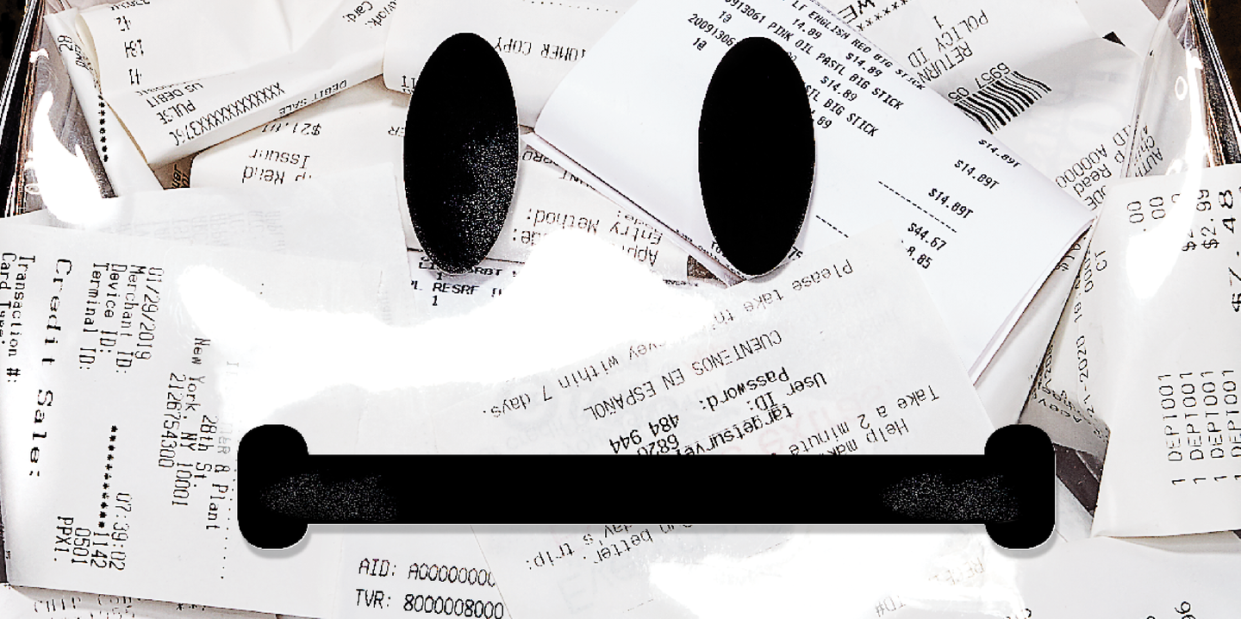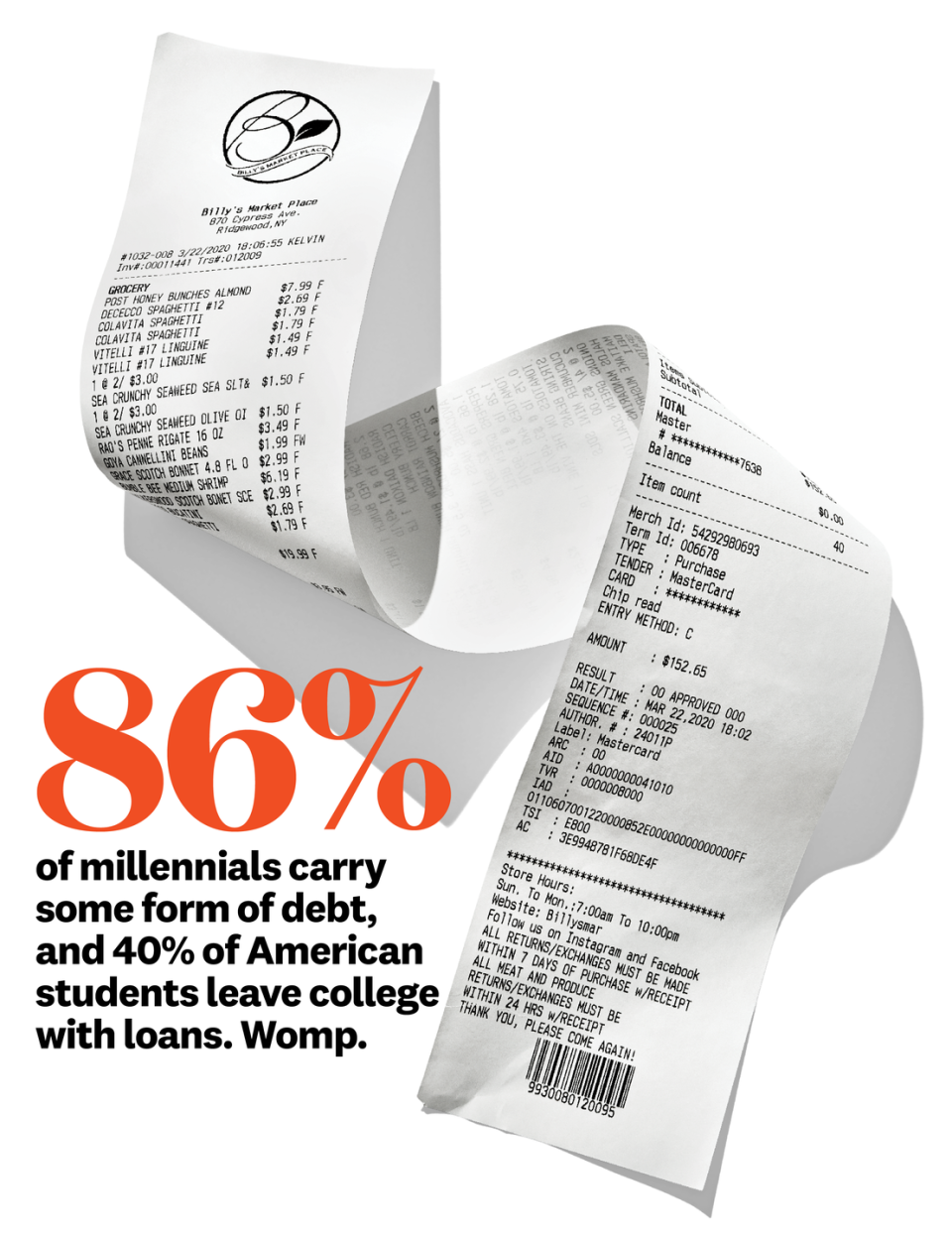I Paid Off $100K In Credit Card Debt

Lynnette Khalfani-Cox was “up to her eyeballs in debt”—a whopping $100,000, in fact. That sum didn’t stack up overnight; she’d been overspending for years on everything from household items, like electronics and clothes, to private-school tuition for two kids. “It finally caught up with me,” she says.
Stuck in what she now, as author of Zero Debt: The Ultimate Guide to Financial Freedom, calls the “minimum payment trap,” Khalfani-Cox never missed monthly bills but didn’t put a dent in her debt either. “Creditors loved me because I was carrying a balance each month, so they were making a profit.”
What she was also carrying: buckets of anxiety and relationship strain. “I constantly worried that my card would get declined, and my now-ex and I argued more about spending than anything else.”
Of course, Khalfani-Cox is far from alone, especially now that 22 million Americans (at press time) find themselves unemployed due to coronavirus-related cuts. The average credit card balance is already nearly $6,200, and the typical college grad has $32,731 in student loans, with women owing more than men. What’s more, over 137 million Americans carry medical debt, a health crisis all its own. Being in the red is associated with higher perceived stress and depression, higher blood pressure, and worse overall wellness, per a Social Science & Medicine study. That’s because a hefty balance can feel like a kettlebell you just can’t swing, and with no rest day in sight thanks to a crappy economy, the lift feels extra heavy.

While *a lot* is out of your hands RN (layoffs, a pandemic…), taking control of what you can is key to not just getting your finances in order but easing that I can’t do this worry. Ahead, the baby steps that pay off big.
1. Figure out exactly how debt you have.
To start, you need to record every single penny you owe. “You cannot make progress if you refuse to see where you stand financially,” Khalfani-Cox says. Create a doc that lists your balances, interest rates, cost of necessities (food, rent), minimum payments, expected bonuses—you get the idea. “Taking a step in the right direction can also instill a sense of control and peace,” says Elena Welsh, PhD, a clinical psychologist. It’s strangely relaxing, seeing the numbers go dowwwn as you chip away at your balance and update the doc. You’ve got this.
2. Celebrate even baby steps forward.
Many money experts recommend tackling high-interest cards/loans first, but paying off smaller obligations gives you the confidence you need to stick it out (like running a 5-K before a 10-K before a half-marathon before a full…ya dig?). And considering debt can make you want to hide under the covers and ignore the problem until you somehow strike it rich, anything that keeps you on track is a major win. Oh, and “be sure to celebrate your small successes along the way,” says Welsh.
3. Negotiate more favorable terms.
Over 80 percent of people who asked their credit card company for a lower interest rate actually got one, according to a recent survey by CompareCards.com. Experts say now is the best time to state your case, but be ready to negotiate: Emphasize your longevity as a customer; explain your financial sitch briefly but honestly; then highlight competitive offers and ask them to beat ’em. No go? Pursue one of those offers (because remember, you are not messing around). Transfer your high-interest balance to a card with a new-customer promo (many charge zilch in interest for a year or so). Then—and this next part is key—pay it off before the offer’s up. “All your payments will go toward your principal balance, not the interest,” Khalfani-Cox says.
Half of married peeps say “I do” to their partner’s debt. Protect your ’ship with tips from fam therapist Thomas Faupl.
4. ID a big goal or two to tackle—and do it.
Just because loans are a socially acceptable debt doesn’t mean you shouldn’t tackle your balance with the same gusto as your other goals. Throw an extra $100 a month at a $33,000 balance (the national average for student debt) and you’ll pay it off three years sooner and save $3,000 overall. Hot tip: Savers tend to focus on dollar amounts rather than time, but people are better at squirreling away money when they think about (and value) the future, research shows. It helps to get specific. How old will your kids be in 10 years? Will you be itchin’ to own a home? Add your big #Goals to that doc of yours.
No fitness budget? No prob. Virtual classes offer the same high-energy sweat sessions for—best word ever—free, and there are more options, now that basically every studio has gone digital in response to the pandemic. Follow your faves on social for live seshes if you haven’t already, and up the ante with the Nike Training Club (free through the end of June; download the app on iTunes or GooglePlay) and ObéFitness (free with the code ATHOME).
You Might Also Like

